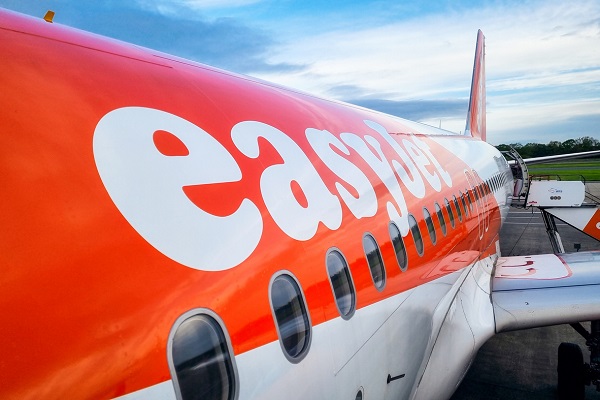easyJet making money and paying dividends again
It's been a long, hard slog, but the budget airline made a big profit in 2023 and returned to the dividend list. ii's head of markets talks through these annual results.
28th November 2023 08:32
by Richard Hunter from interactive investor

easyJet (LSE:EZJ) has finally put the ravages wrought by the pandemic to bed, with the tailwinds of consumers returning to travel and the group’s own aggressive measures providing a twin boost.
At the headline level, an adjusted pre-tax profit of £455 million for the 12 months to 30 September compares with a loss of £178 million in the previous year, and is ahead of the expected £441.6 million. Revenues increased by 42% to £8.17 billion, given the company’s pricing strength, an increase in capacity and load factors and further strong growth in the easyJet holidays arm.
At the same time, the group continues to target more profitable primary airports, as opposed to some of its competitors who choose to fly to cheaper, but less convenient destinations.
- Learn more: SIPP Portfolio Ideas | How SIPPs Work | Transfer a SIPP
Passenger numbers increased by 19% over the year, while revenue per seat rose by 21% to a figure at the pre-tax level of £4.19, as compared previously to a loss of £2.19. The group has seen a true profitable benefit from ancillary revenues which continue to boost revenues, and which include the likes of customer payments for personally allocated seats, baggage and food.
Meanwhile, the holidays business is certainly worth watching, having only relatively recently begun from a standing start. For the year, the unit recorded pre-tax profits of £122 million, a 221% increase from the previous period, while customer numbers jumped by 77% to 1.9 million. The group has long identified that this part of the business is very much in line with the times, with cost-conscious consumers searching for value packages. easyJet also has high hopes for the unit’s longer-term contribution to overall profits, and in the forthcoming year estimates further growth in excess of 35% as the group ramps up the offering.
Financially, the group is also in a much healthier position, as it has battled to reduce debt. Indeed, the current £41 million of net cash compares with a net debt position of £670 million last year, while there is also access to liquidity of £4.7 billion, which adds further flexibility to its expansion plans. The previously trailed return to a dividend has been confirmed and, while a projected yield of 1.1% is for the moment little more than a gesture, the group plans to grow the dividend significantly over the next few years. The very fact that easyJet is in a position to make this move is a far cry from the recent past and shows confidence in prospects which have taken some time to recover.
In terms of outlook, revenue per seat in October (after the end of this reporting period) has risen by 12%, and the group expects that the figure will remain positive in the first quarter, despite the headwinds caused by the ongoing conflict in the Middle East. This conflict has had some unintended consequences outside of the region for passengers who can understandably become more cautious about flying at all, although easyJet reports that this nervousness was short-lived.
The airline sector has traditionally been a difficult one in which to invest, with any number of factors outside the industry’s control weighing on prospects, ranging from conflicts to pandemics, and from volcanic ash clouds to unexpected fires, such as the one easyJet recently suffered at its home airport in Luton. More immediately, a combination of an increase in flown capacity, general cost inflation and significantly higher fuel costs in the period added 30% to the cost line, although this was offset by the group’s general growth elsewhere.
- easyJet sets out plan to deliver £1bn profit
- Trading Strategies: the outlook for BP shares
- Insider: heavy buying at two FTSE 100 companies and this small-cap
Indeed, easyJet has reflected the UK consumer’s mindset in predicting that travel will remain the top priority for discretionary household spending, and is keeping its eye on a longer-term aim of £1 billion of pre-tax profit. The recent Middle Eastern conflict has removed what had been a previously strong share price performance, with the shares down by 17% over the last six months and flat over the last year, as compared to a decline of 4.4% for the wider FTSE250.
There also remains much to do to recapture former glories, since the share price remains down by 42% over the last three years and by 60% over the last five, which will keep management grounded in continuing to pursue its ultimate goals. In the meantime, the market consensus of the shares as a 'cautious buy' reflects some optimism that a return to easyJet’s previous ascent may indeed be achievable.
These articles are provided for information purposes only. Occasionally, an opinion about whether to buy or sell a specific investment may be provided by third parties. The content is not intended to be a personal recommendation to buy or sell any financial instrument or product, or to adopt any investment strategy as it is not provided based on an assessment of your investing knowledge and experience, your financial situation or your investment objectives. The value of your investments, and the income derived from them, may go down as well as up. You may not get back all the money that you invest. The investments referred to in this article may not be suitable for all investors, and if in doubt, an investor should seek advice from a qualified investment adviser.
Full performance can be found on the company or index summary page on the interactive investor website. Simply click on the company's or index name highlighted in the article.